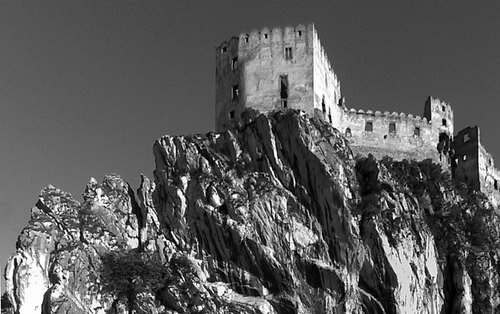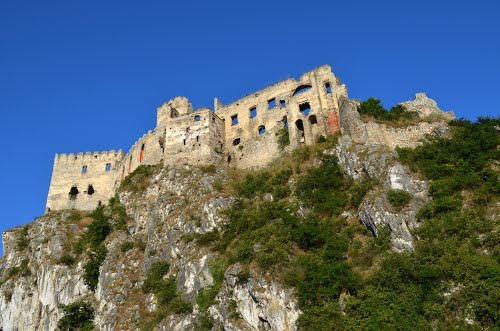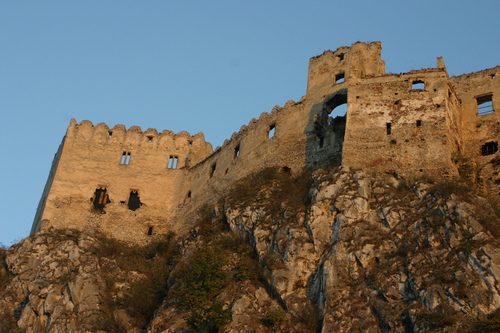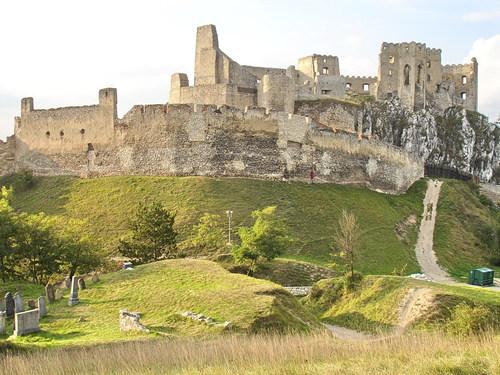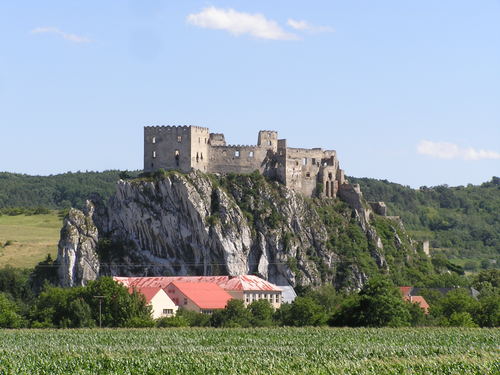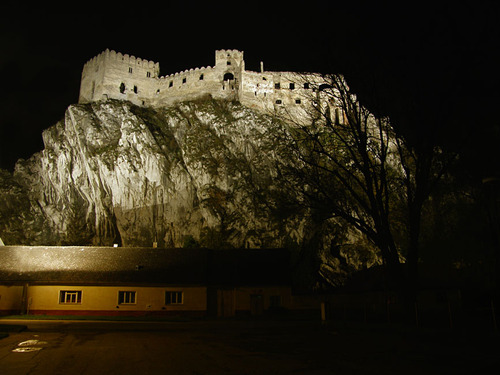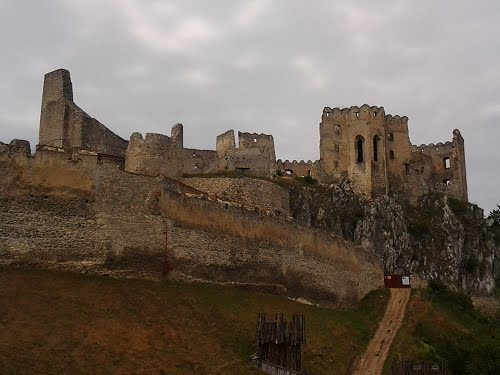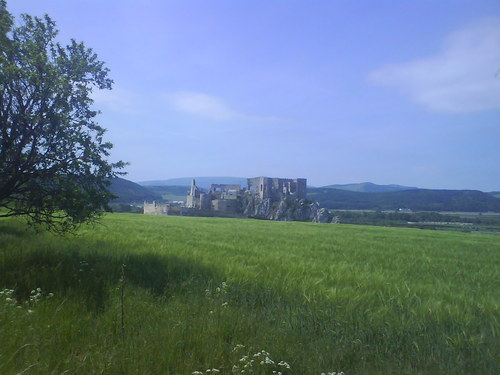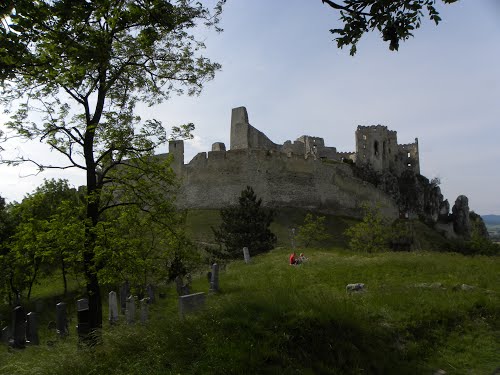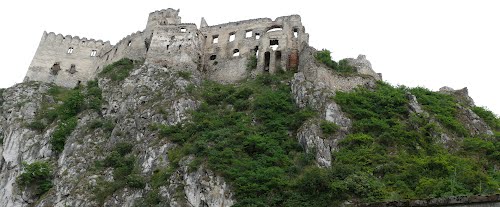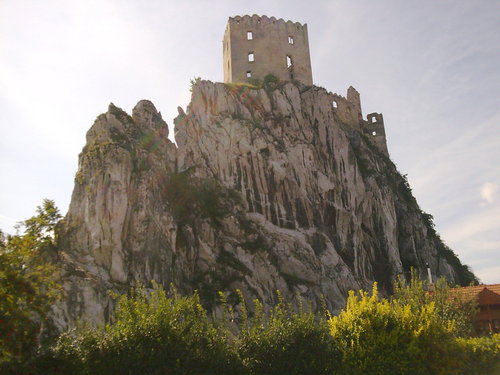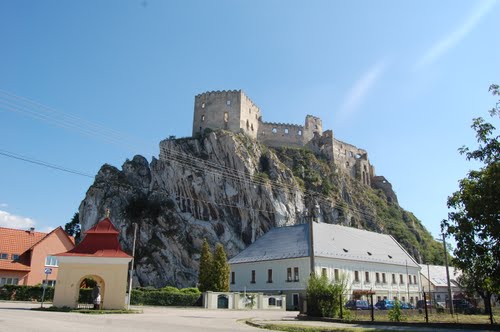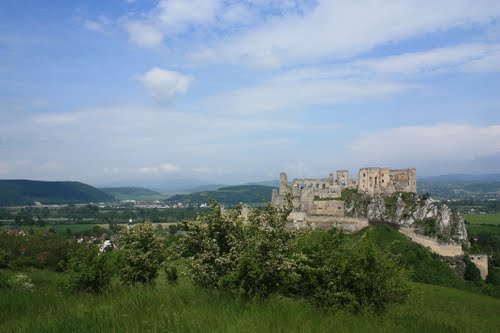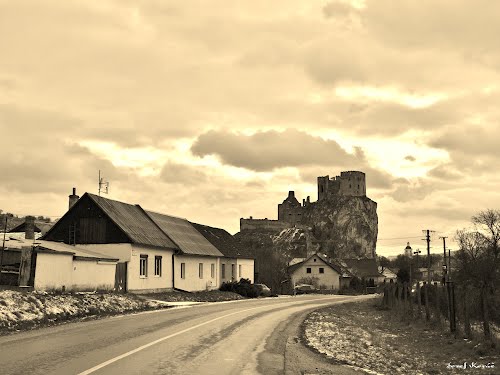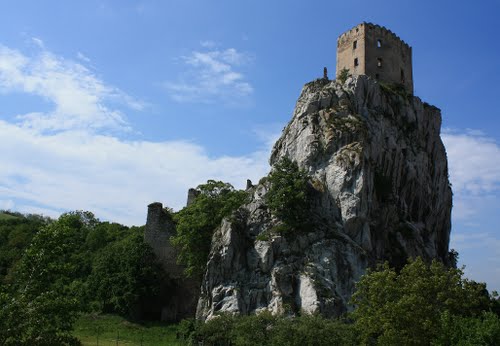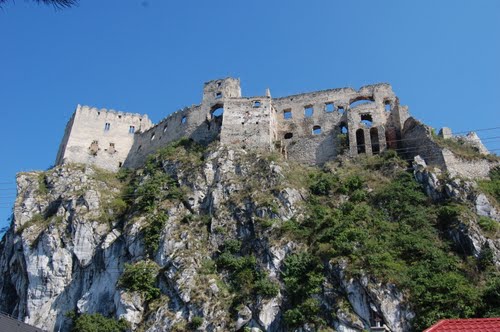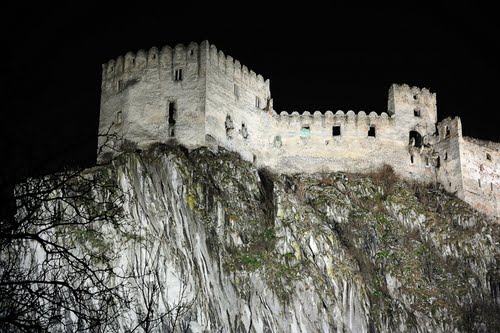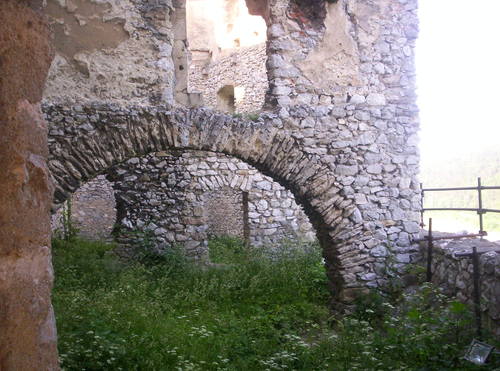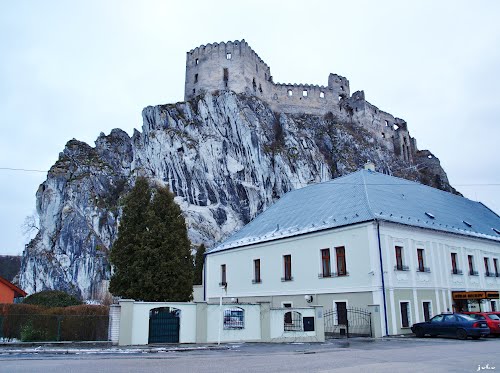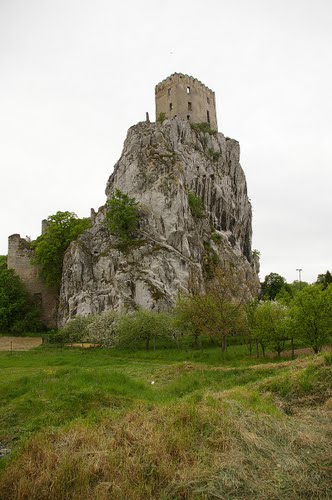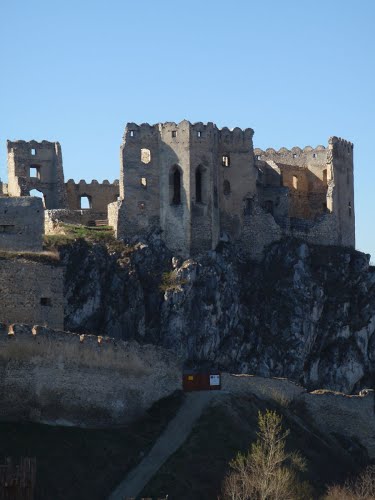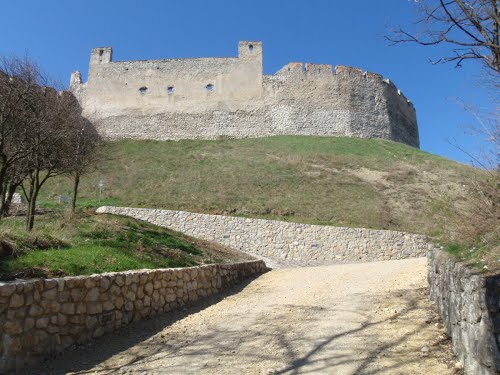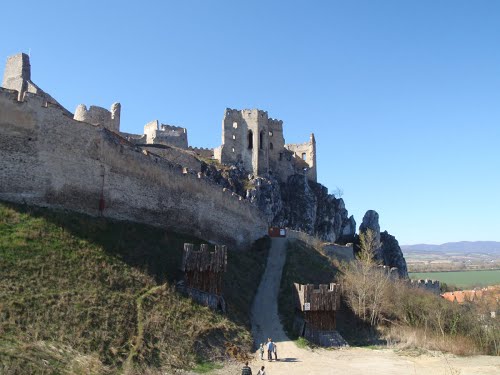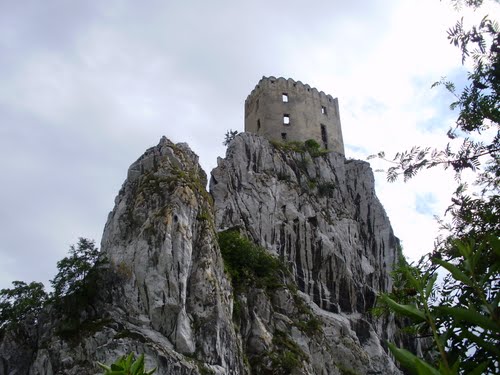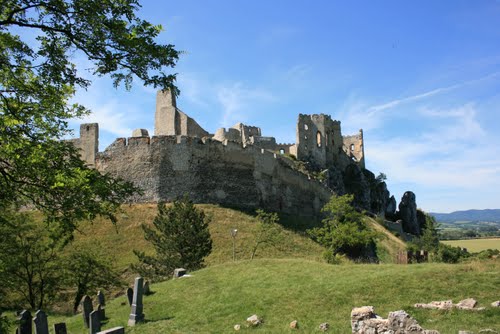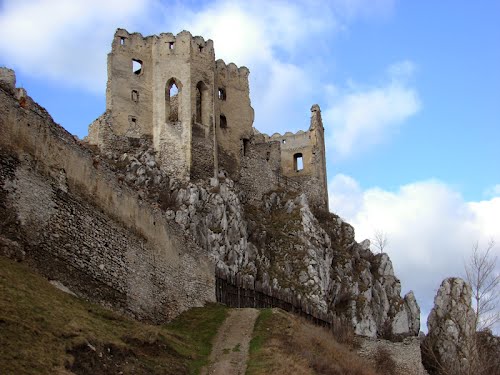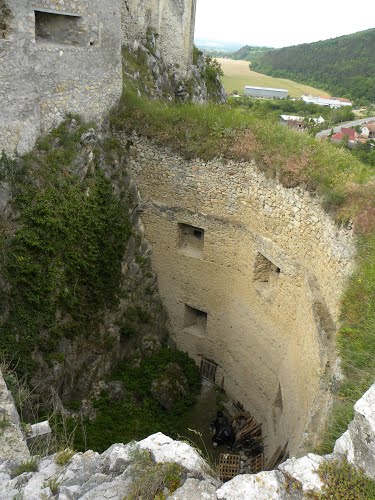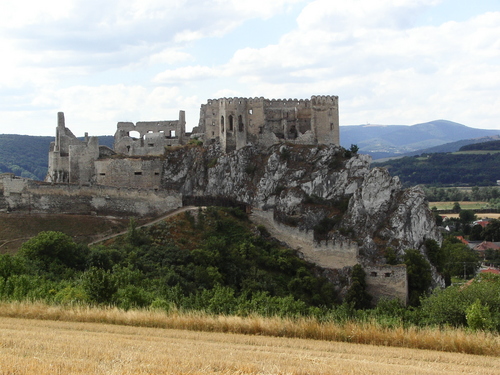Beckov Castle is a castle in ruins located near the village of Beckov in Nove Mesto nad Vahom District, Trencin Region, western Slovakia.
It is a natural cultural monument and its present appearance is the result of renovations in the last quarter of the twentieth century and since 2002.
History
Great Moravia–1388
The Beckov Cliff is a klippe of the Hronic nappe well exposed by the Vah River. The castle is situated on the cliff near the river, and was used as a strategic outpost in Great Moravia. A stone castle was built there to protect the borders of the Kingdom of Hungary, probably in the middle of the 13th century. The castle became property of Matthew III Csak at the turn of the 13th and 14th centuries and was fortified under his rule. After his death in 1321, the castle was administered by castellans. Louis I of Hungary gave the castle to Miklos Banffy in 1379 as a reward for his service in battles in the Balkans and Italy.
1388–1437
In 1388, the castle was given by Sigismund, King of Hungary to Stibor of Stiboricz of the Clan of Ostoja, a Lord of Polish origin. Stibor was one of king's most influential advisors and in control of significant part of Northern Hungary (today, Slovakia). Of 31 Castles that was in possession of Stibor, he chose Beckov as his home, giving the Castle special care. He rebuilt the castle into his family seat in the Gothic style. Artists from Venetia, Poland, Germany and Bohemia was working on to make Beckov an outstanding place. Stibor also built a chapel with splendid sculpture decorations and paintings including sculpture of Black Madona which was considered as one of the most beautiful in Europe at that time. In entrance to the chapel, there was a family coat of arms made of stone.
After Stibor's death in 1414, the castle was inherited by his son, Stibor Stiboric of Beckov. Because Stibor Stiboric of Beckov did not have a son, he bequeathed the property to his daughter Katarina (Katherine). However, the royal council decided that she would receive only the customary one fourth of her father's property paid out in cash. The castle was given to Pál Bánffy by Sigismund in 1437, one day before Sigismund's death, probably under the condition that he would marry Katarína, which was fulfilled.
1437–1729
After the Battle of Mohacs in 1526, where the Kingdom of Hungary was defeated by the Ottoman Empire, the Banffy family rebuilt the castle into a Renaissance fortress and noble seat. One of the Banffys, Janos Banffy, was killed fighting against the Turks in 1595. The castle was successfully defended against a Tatar siege in 1599. The Banffy family owned the castle until 1646, when its last member, Kristof Banffy, died.
Following the death of Kristof Banffy, Beckov castle was gradually turned into a prison and barracks. In 1729, a fire destroyed the interior and roofs of the castle and turned it into ruins.
20th century
The castle was proclaimed a national cultural monument in 1970. Its present appearance is the result of renovation in the last quarter of the 20th century.




